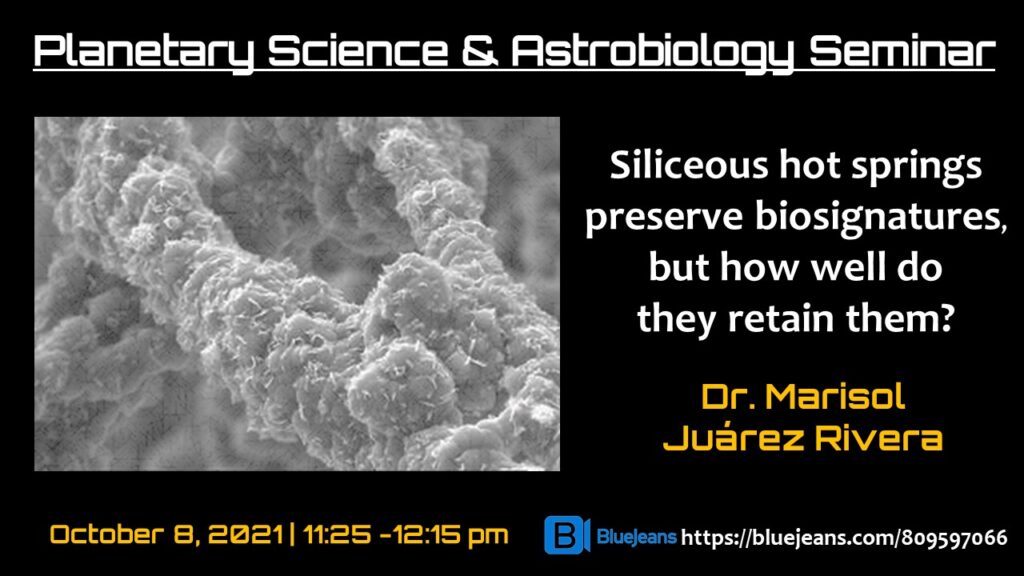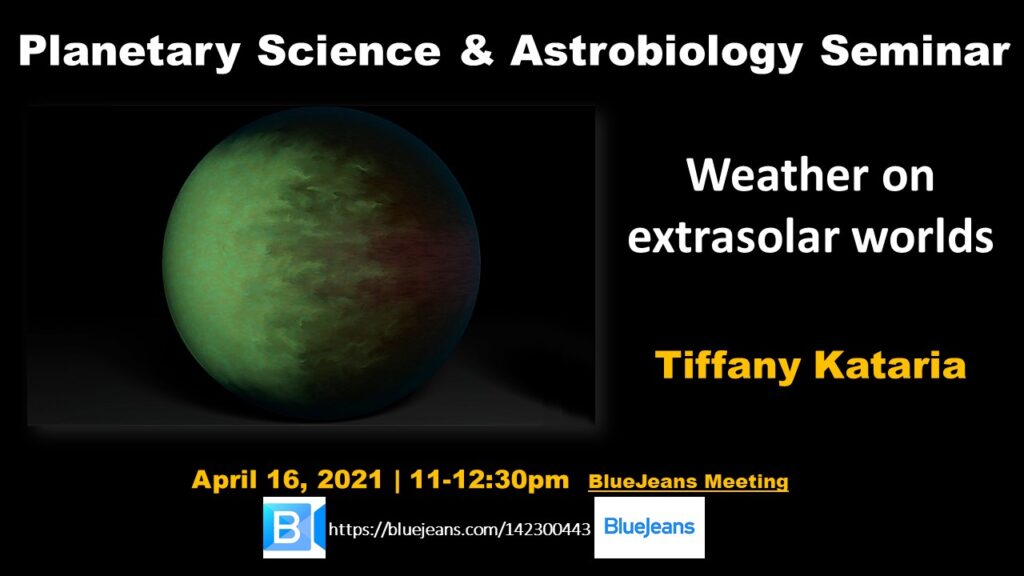PSAS: Informing Perseverance Rover Biosignature Studies with Raman and Fluorescence Spectroscopy
PSAS: Siliceous hot springs preserve biosignatures, but how well do they retain them?

Speaker: Dr. Marisol Juárez Rivera, Geobiologist in the School of Earth and Space Exploration at Arizona State University
PSAS: Detecting life as we don’t know it
PSAS: Deciphering global tectonic patterns on Mercury
PSAS: The Once and Future Lunar Atmosphere: Modeling the Moon’s Water Cycle
PSAS: Habitability Models for Astrobiology
PSAS: Welcome, Astrobiology program updates, and announcements

Speakers:
Dr Frances Rivera-Hernández, lead for the Planetary Science & Astrobiology Seminar Series and Co-Director of the Astrobiology Graduate Certificate Program
Dr. Jennifer Glass, Co-Director of the Astrobiology Graduate Certificate Program
PSAS: Book talk – Sociology of Spacecraft Mission Teams
Professor Vertesi specializes in the sociology of science, knowledge, and technology. Her primary research site is with NASA’s robotic spacecraft teams as an ethnographer. Her books, Seeing like a Rover: Images and Interaction on the Mars Exploration Rover Mission (Chicago, 2015) and Shaping Science: Organizations, Decisions, and Culture on NASA’s Teams (Chicago, 2020) draws on her ethnographic studies of missions to Mars, Saturn, and the outer planets to examine how organizations matter to scientific discovery. Vertesi is also a leader in digital sociology, whether studying computational systems in social life, shifting research methods online, or applying social insights to build technologies along different lines. She holds a Master’s degree from Cambridge and a PhD from Cornell, has received several grants from the National Science Foundation, and has been awarded top prizes for her work from the ASA’s Science, Knowledge and Technology Section and Communication, Information Technology and Media Section, and the Society for Social Studies of Science.
Janet Vertesi,
Associate Professor, Department of Sociology at Princeton University
PSAS: Weather on extrasolar worlds

As observations of exoplanet atmospheres have grown in number and fidelity, spanning a larger
wavelength range at ever-higher spectral resolution, they have provided unprecedented constraints
for exoplanet atmospheric models. These datasets allow us to probe their atmospheric properties,
including the composition and spatial distribution of clouds. In this talk I will discuss efforts to
understand the advective, radiative and chemical processes taking place in giant exoplanet
atmospheres via three-dimensional (3D) circulation modeling, and how they serve to inform
comparative exoplanetology studies of transiting giant planets using the Spitzer and Hubble Space
Telescopes (and soon the James Webb Space Telescope). I will also discuss how our efforts to
understand giant planets can be extended to our understanding the climate of potentially habitable
worlds, particularly those transiting M-dwarfs.
Tiffany Kataria,
Scientist, NASA Jet Propulsion Laboratory Exoplanet Discovery and Science
